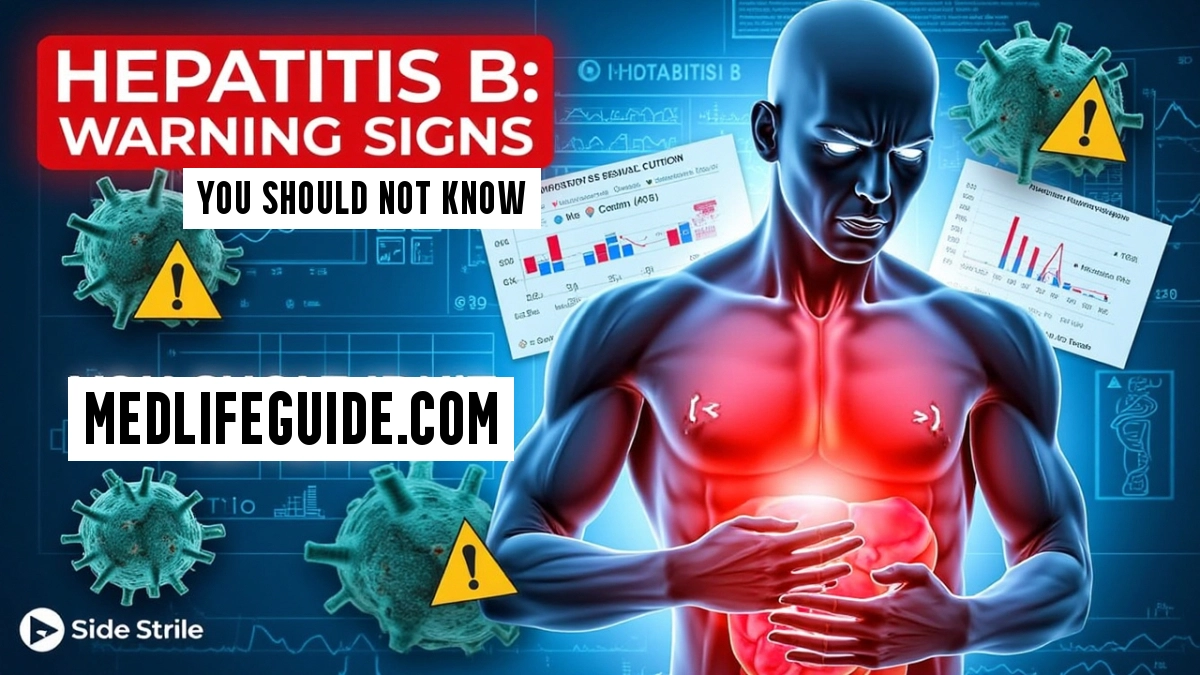Hepatitis B is a viral infection that attacks the liver, often going unnoticed until serious damage occurs. Many people don’t realize they’re infected because symptoms can be mild or absent in the early stages. Recognizing hepatitis B symptoms early can be life-saving, as untreated cases may lead to cirrhosis, liver failure, or cancer.
- Early vs. chronic symptoms
- How hepatitis B differs from other types (A, C, etc.)
- When to see a doctor
- Prevention and next steps
Early Symptoms of Hepatitis B (Acute Phase)
About 30-50% of adults with acute hepatitis B experience noticeable symptoms, usually appearing 1-4 months after exposure. These may include:
1. Flu-Like Fatigue
- Extreme tiredness, even after rest
- Mild fever or chills
2. Digestive Issues
- Loss of appetite
- Nausea or vomiting
- Abdominal discomfort (especially on the right side, near the liver)
3. Jaundice (Yellowing of Skin & Eyes)
A classic sign of liver trouble, jaundice occurs when bilirubin builds up due to impaired liver function.
4. Dark Urine & Pale Stools
- Urine may appear cola-colored
- Stools become clay-like due to bile flow disruption
5. Joint & Muscle Pain
Some people report arthralgia (joint pain) resembling rheumatoid arthritis.
Chronic Hepatitis B Symptoms
If the virus persists beyond 6 months, it becomes chronic. Many people remain asymptomatic for years, but silent liver damage can occur. Warning signs include:
1. Persistent Fatigue
Unlike acute cases, chronic fatigue lingers and worsens over time.
2. Unexplained Weight Loss
The liver’s metabolic role is disrupted, leading to muscle wasting.
3. Spider Angiomas & Skin Changes
Small, web-like blood vessels on the skin (a sign of liver scarring).
4. Swelling (Edema & Ascites)
- Legs/ankles swelling (edema)
- Abdominal bloating (ascites) from fluid buildup
5. Confusion (Hepatic Encephalopathy)
Toxins affect the brain, causing memory lapses, confusion, or tremors.
When to Seek Emergency Care
Seek immediate help if you experience:
- Vomiting blood (hematemesis)
- Black, tarry stools (melena, indicating internal bleeding)
- Sudden confusion or coma
How Hepatitis B Differs from Other Types
| Feature | Hepatitis B | Hepatitis A | Hepatitis C |
|---|---|---|---|
| Transmission | Blood, sex, birth | Contaminated food/water | Blood exposure |
| Chronic? | Yes (10% adults) | No | Yes (75-85%) |
| Vaccine? | Yes | Yes | No |
Prevention & Next Steps
- Get vaccinated (if not already immune).
- Practice safe sex and avoid sharing needles.
- Regular liver checkups if at risk (e.g., healthcare workers, travelers).
Final Thoughts
Hepatitis B symptoms can be deceptive—sometimes mild, sometimes severe, but always a threat to liver health. Early detection saves lives. If you’re at risk, get tested today.
For more detail about causes and preventions of Hepatitis B click here

